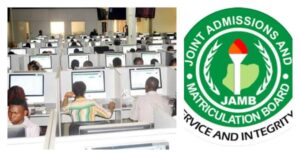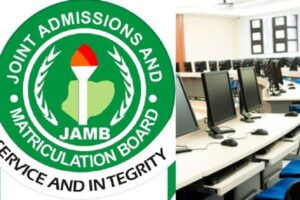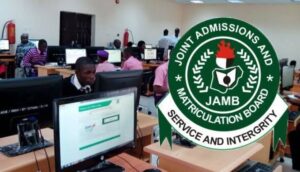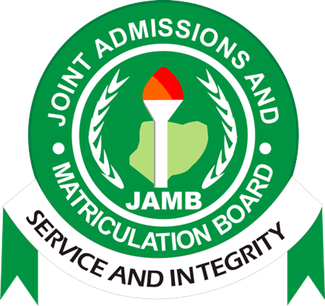Are you preparing for the JAMB 2025/2026 History exam? If so, you’re in the right place! Passing JAMB can be tough, but with the right tips, preparation, and practice questions, you can score high. In this article, we’ll provide essential details, possible JAMB History questions, and answers to help you prepare.
Important Note: Always study ethically. There is no shortcut to success—only dedication, effort, and the right study materials will help you succeed. Avoid any form of malpractice to stay on the right side of the law. Now, let’s dive into JAMB History preparation!
Why Study JAMB History?
History is an important subject because it teaches us about the past, helps us understand the present, and prepares us for the future. JAMB History tests your knowledge of significant events, cultures, and movements in Nigeria, Africa, and the world. Understanding the timeline of history and how it has shaped societies is key to passing this subject.
JAMB History Exam Structure
The JAMB History exam usually consists of multiple-choice questions. You will be tested on topics from Nigerian history, African history, and world history. The questions are designed to test your critical thinking and ability to connect historical facts.
Here is the general structure of the exam:
- Total number of questions: 40 to 50
- Time duration: 1 hour
- Topics covered: Precolonial Nigeria, colonial Nigeria, post-independence Nigeria, African empires, European colonization, world history events, and more.
How to Prepare for JAMB History
- Know the Syllabus: Get the official JAMB syllabus to ensure you are studying the right topics.
- Use Past Questions: Practicing past questions helps you understand the exam format and common question types.
- Create a Study Schedule: Divide your study time to cover all topics thoroughly before the exam.
- Study with a Group: Discussing topics with friends can improve your retention and understanding of key concepts.
- Take Notes: Writing down important details can help you remember key facts and dates.
- Stay Updated: Keep up with current affairs and understand how past events shape the present.
JAMB History Topics to Focus On
1. Precolonial Nigerian History
- The Nok Culture
- Igbo-Ukwu artifacts
- Benin Kingdom and its art
- Yoruba kingdoms (Oyo Empire, Ife, etc.)
- Hausa States and Kanem-Bornu Empire
2. Colonial History of Nigeria
- European exploration and trade
- Missionary activities and Christianization
- British colonization and amalgamation in 1914
- The struggle for independence
- Nationalist leaders (Nnamdi Azikiwe, Obafemi Awolowo, Ahmadu Bello, etc.)
3. Post-Independence Nigeria
- Nigeria’s First Republic (1960-1966)
- The Nigerian Civil War (1967-1970)
- Military coups and leadership
- Democratic transitions and major political events
4. African History
- Ancient African empires (Ghana, Mali, Songhai)
- Slave trade and its impact on Africa
- Colonial rule in Africa and resistance movements
- African nationalism and independence movements
5. World History
- World Wars (World War I and World War II)
- The Cold War and its impact on Africa
- Major revolutions (French, American, Russian)
- Globalization and modern-day global politics
JAMB History Sample Questions and Answers
Here are some sample questions to help you understand what to expect:
Question 1:
The Nok Culture is best known for its:
A. Metal tools
B. Artistic sculptures
C. Agricultural practices
D. Political system
Answer: B. Artistic sculptures
Question 2:
Which Nigerian leader played a major role in the independence struggle?
A. Yakubu Gowon
B. Herbert Macaulay
C. Murtala Mohammed
D. Muhammadu Buhari
Answer: B. Herbert Macaulay
Question 3:
The amalgamation of Nigeria took place in which year?
A. 1900
B. 1914
C. 1945
D. 1960
Answer: B. 1914
Question 4:
What was the main cause of the Nigerian Civil War?
A. Religious differences
B. Ethnic tensions and political conflict
C. Foreign invasion
D. Colonial rule
Answer: B. Ethnic tensions and political conflict
Question 5:
Which empire was ruled by Mansa Musa?
A. Ghana Empire
B. Mali Empire
C. Songhai Empire
D. Benin Empire
Answer: B. Mali Empire
Question 6:
The Berlin Conference of 1884-85 was held to:
A. Promote African trade
B. End slavery
C. Divide African territories among European powers
D. Establish African unity
Answer: C. Divide African territories among European powers
Question 7:
The French Revolution started in:
A. 1756
B. 1789
C. 1815
D. 1848
Answer: B. 1789
Tips for Answering JAMB History Questions
- Read Carefully: Make sure you understand each question before selecting an answer.
- Eliminate Wrong Answers: Narrow down your choices by eliminating obviously incorrect answers.
- Time Management: Don’t spend too much time on one question. If you’re unsure, move on and come back later.
- Use Historical Context: Try to recall related historical events to help you make the right choice.
- Stay Calm: Keep a clear head during the exam to avoid mistakes caused by anxiety.
Conclusion
Passing the JAMB 2025/2026 History exam requires preparation, dedication, and practice. Focus on understanding key historical events, practice past questions, and follow a study plan. Remember, there’s no shortcut to success—honest preparation is the best strategy. Good luck with your studies!
Frequently Asked Questions (FAQs)
What is the best way to study for JAMB History?
The best way is to understand the JAMB syllabus, study past questions, take notes, and create a consistent study schedule.
How many questions are in the JAMB History exam?
JAMB History typically consists of 40 to 50 multiple-choice questions.
What topics are covered in JAMB History?
The topics include Nigerian history (precolonial, colonial, and post-independence), African history, and world history.
Can I rely on expo or leaked questions?
No. Depending on leaked questions is risky and unethical. It’s better to study honestly to ensure success.
How can I get past JAMB History questions?
You can find past questions in JAMB-approved study guides, educational websites, or from previous exam candidates.
When should I start preparing for JAMB History?
Start preparing as early as possible to give yourself enough time to cover all topics and practice sufficiently.
With the right preparation and mindset, you can ace your JAMB History exam. Stay positive, stay focused, and success will follow!








